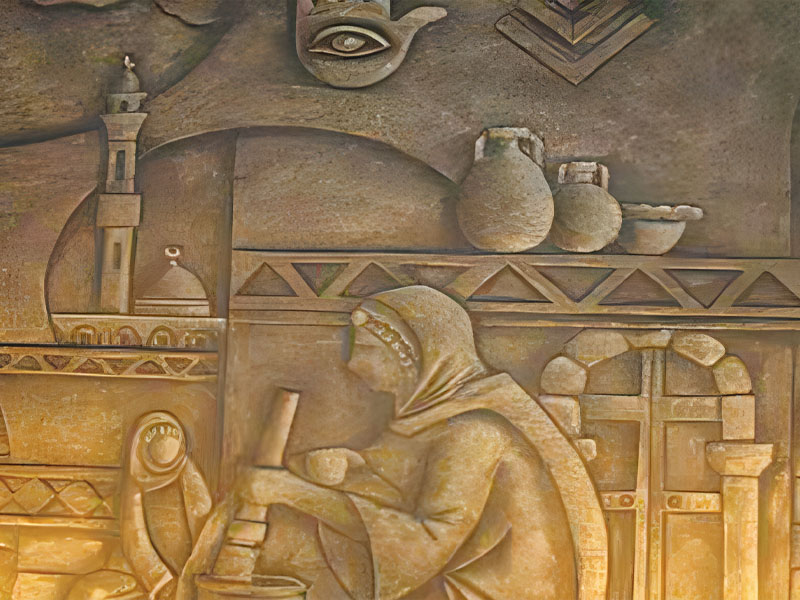The Palestinian Folktale: Identity and Globalization
Issue 22

Heritage is one of the main pillars of Arab nationalism; it plays an important role in preserving identity and promoting nationalism and patriotism. Folktales are the backbone of folklore, because folklore has been closely related to the human experience since ancient times.

This study discusses the importance of heritage and its role in enhancing people’s sense of belonging to a land or country. The study defines the folktale by its most important characteristics: it is inherited, it doesn’t go into detail, it is flexible and subject to change, and it includes coincidences. The study also addresses the patterns of folktales in Palestinian society based on the differences in the tales’ content and function; the most prominent patterns are social reality tales, stories about animals, mythical stories and entertaining humorous tales.
The study uses the descriptive analytical approach to analyze some common folktales in Palestine and interpret their themes.
Heritage is a key factor in the link between a nation’s past and present. Heritage is vital for peoples, and an essential condition for their existence, identity and cultural unity; heritage is the real indicator of a nation’s civilization and originality. By researching heritage, nations may be able to consolidate their identities, which face external and internal challenges such as colonization and globalization, which dilutes national heritage.
The most important pillars of Arab nationalism are the single race, language, heritage, and general interest. By studying heritage, we can identify many points of similarity among Arabs, and such studies can minimize differences and ease conflicts in the Arab world.
On the other hand, the study of heritage and folklore deepens the sense of national belonging, reveals aspects of culture that have accumulated and been passed down through the ages, and reveals aspects of the national character. Folkloric studies play an important role in reviving nationalism and preserving identity.
Studies and research in the field of heritage and folklore can help us to face the challenges of globalization, which threatens the natural link between nations and their history.
For Palestinians, folklore offers a means to sincerely express the nation’s emotions, and a refuge from the painful reality of challenging conditions. Folktales have always had ethical and moral themes; they criticize social and political conditions in an entertaining and humorous way.
The following steps should be taken in order to preserve heritage:
Preserve and protect heritage, and revive it to ensure it remains a source of inspiration for the members of society, and stays alive in people’s minds throughout time.
Encourage and support researchers and people interested in folkloric studies and form specialized committees to supervise them, and organize their work.
Involve students in Arabic and sociology departments at universities in heritage collection and recording according to their geographic locations.
Include the study of folk culture in syllabi at schools and universities so that the younger generation learn about this field of study.
Work to preserve heritage and to protect it against the threats posed by Occupation and globalization, and attempt to recover heritage that has been stolen.
Najiah Al Hmoud
Palestine







































































